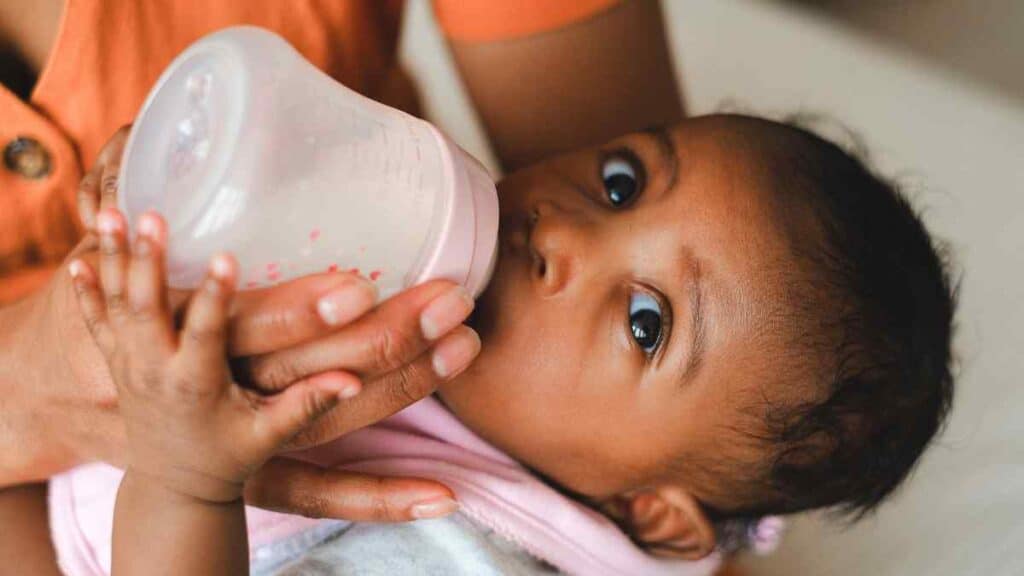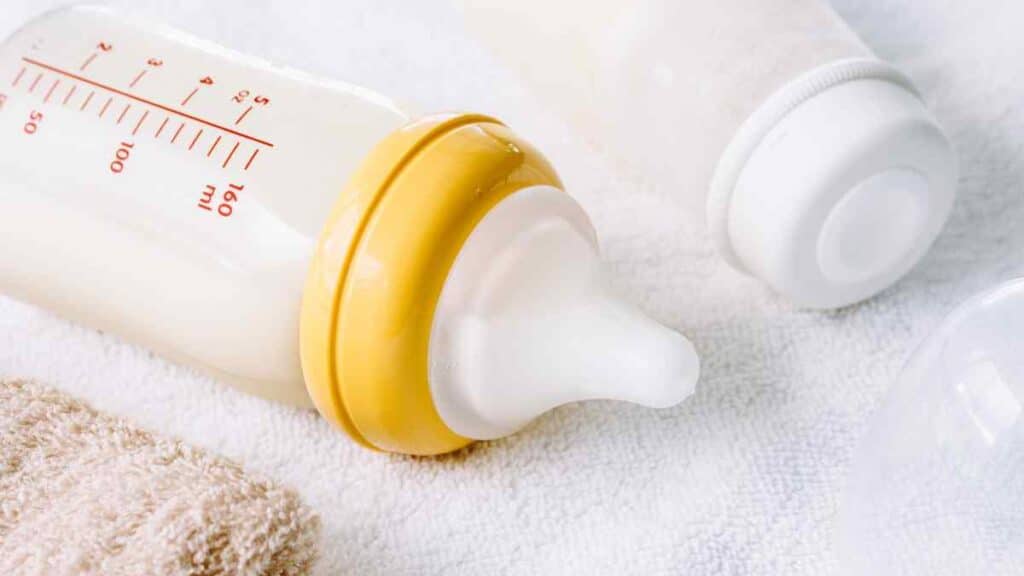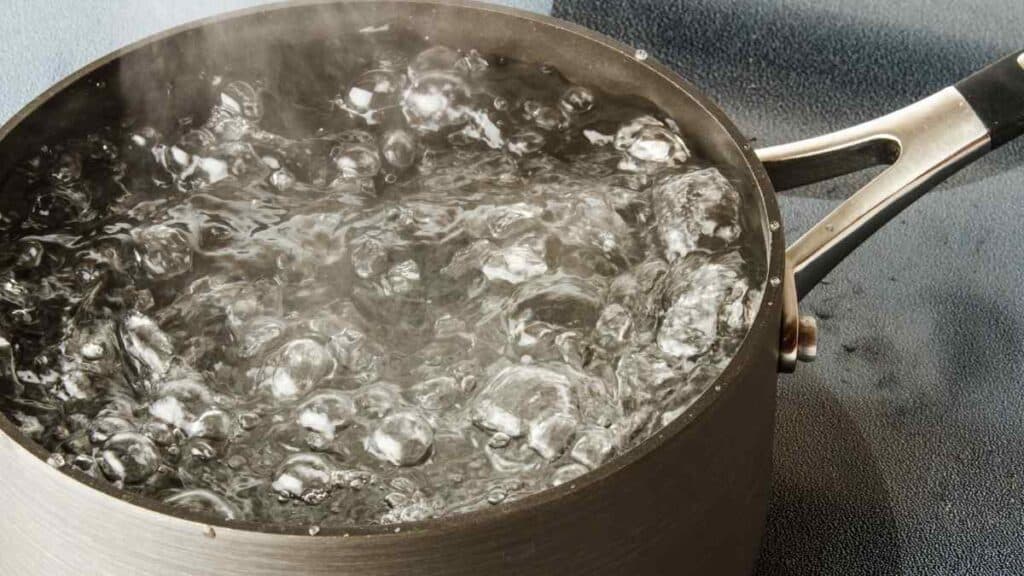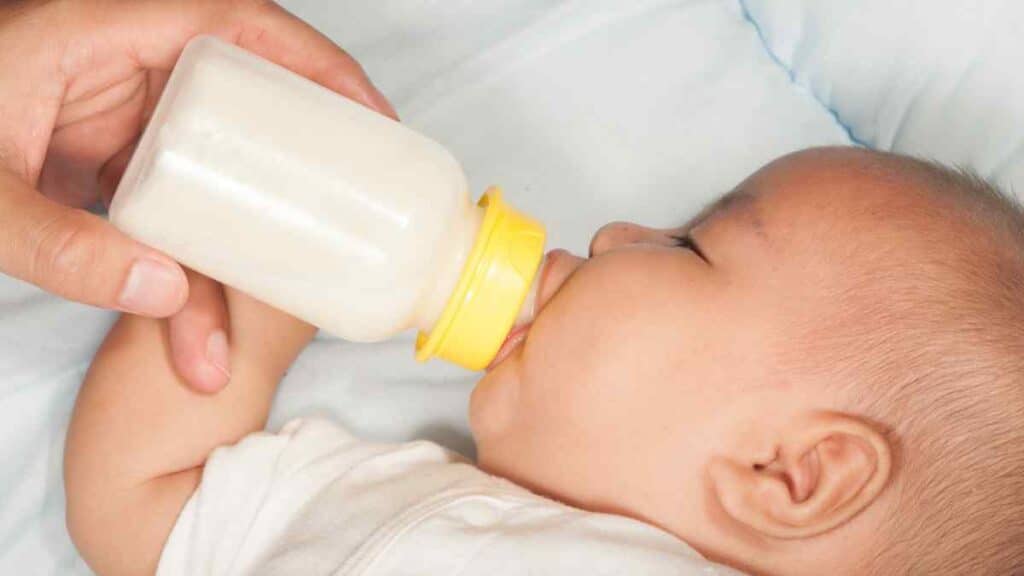Even though all water sources appear the same, not every water source is created equal. Now, it’s not just about how it tastes. It’s also about the water’s safety, which is especially important when deciding what water to use for infant formula. But can you use bottled water for formula? Or are there other alternative water sources that you can consider when preparing infant formula?
This content will discuss everything you need to know about baby formula, the right water for baby formula, and a few other pieces of information that you might find valuable. So, if you want to learn more about this topic, continue reading to find out.

Types of Water for Infant Formula
Tap Water
Tap water is one of the most common and easily accessible water sources that you can use to safely prepare infant formula. Alternatively, tap water in the country also has fluoride in its system to help prevent the development of cavities.
Using tap water for baby formula can help protect your baby’s budding teeth because of its fluoride content. But since a baby’s teeth are primarily tiny, they’re prone to exposure to too much fluoride. Thus, causing them to develop fluorosis.
Boiling water would be pretty much the same since the mineral will only stay in it after boiling it. Most parents and caregivers often choose low fluoride bottled water when preparing baby formula.
Fluoridated Water
Another one that you can use to mix baby formula powder is fluoridated water. Unlike low-fluoride bottled water, this product has a higher concentration of fluoride, making it less ideal for regular feeding.
A baby formula often contains the right amount of fluoride to suit your baby’s needs. So, using tap water as you safely prepare baby formula would only add too much fluoride into the mix, increasing the risk of developing dental fluorosis. Although it may not be harmful, mild dental fluorosis can cause faint white lines on the tooth’s enamel, which may cause even affect the adult teeth if left untreated.

Well Water
Well water is another option that you may use when mixing baby formula. However, it would be best to be highly cautious when using this water supply as it may contain harmful bacteria, leading to a potentially life-threatening health condition.
Also, some wells contain high nitrate levels, which can put babies at risk for developing methemoglobinemia. This blood disorder can affect the primary function of red blood cells in delivering oxygen throughout the body. Worse, you will need to do more than boiling water to solve the problem. That’s why it’s best to know the water quality by testing it before you mix formula with it.
Bottled Water
Bottled water has the highest water safety level compared to other options, making it the safest water source for baby formula. Bottled water has many variations, including the following:
- Purified Water
- Distilled Water
- Deionized Water
- Demineralized Water
Although these processes may differ, each product is safe for making baby formula and doesn’t require you to boil the water.
When choosing bottled water, it’s essential to know if it contains additives such as fluoride or electrolytes. Doing so lets you decide if the amount will be too much on your baby’s body. It’s still highly advisable to use regular bottled water to prepare baby formula safely.
A Quick Look at Fluoride

Fluoride is a mineral naturally found in nature. These days, municipal water systems have added them to the supplies to protect people from cavities. Fluoride is also found in various dental products such as toothpaste and mouth rinse.
Fluoride is an excellent way to protect your teeth from cavity buildup by strengthening the enamel of the teeth against sugars and acids that may damage it. However, the American Academy of Pediatrics says that excessive fluoride exposure can cause mild dental fluorosis in a child, which causes mild white strokes on the person’s teeth.
The World Health Organization says that exposure to at least 1.5 milligrams of fluoride for every liter of water increases the risk of developing fluorosis. So, when choosing bottled water, you must check the label before using it for your prepared formula.
Simple Steps When Preparing Powdered Formula
Start by Adding Water First
When mixing your baby’s formula, you must start by adding the water first, followed by your prepared formula. It’ll make it easier to mix infant formula if you add tap water first and then add the baby’s formula after.
Start Boiling Water
According to the American Academy of Pediatrics, babies who have yet to reach three months, born with a weakened immune system, and premature infants, should use a powder formula prepared with boiling tap water that’s been cooled down. Doing so ensures that the water is free of harmful microbes that may affect your baby’s health. Let them sit for at least 5 minutes until it turns into the cool water.
Test the Temperature
Once the water for baby formula has been cooled down, you can start testing the formula temperature by shaking a few drops of the warm formula on your wrists. Doing so will help make it easier to determine if it’s similar to your body temperature. One way to cool it down is by running the bottled water in tap water or placing it in an ice bath.
Get Rid of Any Leftover Formula
Sometimes, your baby might not be able to consume your prepared formula entirely. When that happens, you must ensure that you discard any leftover concentrated liquid formula within an hour of the feeding.
When to Boil Tap Water
Experts agree boiling water is safe, especially when preparing your baby’s formula. Doing so guarantees your baby’s safety from infections caused by harmful pathogens.
If your baby has yet to reach six months of age, boiling water is a must. However, it would help if you waited for it to cool down before mixing it with your baby’s formula.
Meanwhile, you no longer need to boil tap water if your baby is older than six months, as this wouldn’t change the fluoride level in it. Whether you’re using tap water or bottled water, it’s always best to ensure that it’s safe for your baby’s formula.
Instances When You Need to Boil Water
Boiling water is a crucial step in the process of preparing infant formula. The primary purpose is to kill any harmful bacteria or contaminants that may be present in tap water or other water sources. The Centers for Disease Control (CDC) recommends bringing the water to a rolling boil for at least one minute and then allowing it to cool to room temperature before using it to mix the formula.
It’s essential to boil water in the following situations:
- Boiling tap water is necessary if you plan to use it for mixing baby formula. While most tap water is treated and safe for consumption, boiling further ensures that it’s free from any potentially harmful contaminants.
- Although nursery water is marketed as safe for babies same as purified water for babies, it is still advised to boil it before use. This extra precaution helps to guarantee the elimination of any bacteria or impurities that may have been introduced during bottling or storage.
- Distilled water undergoes a purification process that removes most impurities, but it’s still a good idea to boil it before mixing it with powder formula. This step helps ensure the highest level of safety and quality for your baby’s formula.
- If you’re unsure about the quality of the water source or if it’s not adequately treated, always boil the water before using it to prepare infant formula.
However, it’s important to note that boiling water will not remove fluoride from fluoridated water sources. If you are concerned about how much fluoride is in your tap water, consider using bottled water with low fluoride levels or consulting your local water provider for information.
Water Intoxication
While providing clean, safe water is essential for preparing baby formula, it’s also crucial to avoid water intoxication. This rare but serious condition can occur when babies consume too much water, leading to an imbalance of electrolytes in their bodies.
To prevent water intoxication, always follow the formula manufacturer’s instructions regarding the proper ratio of water to the powder, and avoid giving your baby additional water unless advised by a healthcare professional.

Additional Factors to Consider
If you only have tap water for your baby’s formula, you can boil it in advance so that you can use it when preparing it once your baby becomes hungry. It’s also important to consider how to store the treated tap water for future use.
Bottled Water Storage Tips
When storing fluoridated water for formula preparation, you must always wash your hands before touching anything. It’s also best to sterilize the glass jars or water jugs with lids before storing cooled-down boiling water. It’s an effective disease control and prevention step to reduce the chances of contamination.
You should also sterilize your baby’s bottle before putting in your mixed formula. It’s also an effective disease control technique that protects your baby from harmful pathogens.
If you have any unused mix formula, you can store it in the fridge until you need it and store it for up to 24 hours. This way, you can quickly grab one and mix it with either distilled or purified water once your baby gets hungry.
It would be best if you also considered labeling each bottle that indicates the date you prepared the formula. If you need more clarification about the safety of the bottle of formula or container, then it’s best to throw it out.
Resist the urge to put the leftover bottle inside the fridge after feeding it to your baby. There’s a big chance that the bacteria from your baby’s mouth can double in number while in the refrigerator.

Conclusion
These are only a few things you must remember when choosing the best water source for infant formula. Remember to get the water tested if you plan to use well water or underground water for mixed formula.
You should also reach out to your pediatrician to know how to protect your baby’s developing teeth from too much fluoride. If you’re concerned about your baby’s dental health, it’s best to use low-fluoridated water when mixing infant formula.
If you have any questions or concerns about this article, please let me know in the comments section below.



